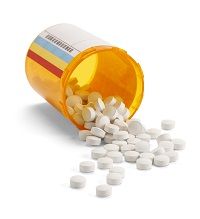Pharmaceutical Heroin to Fight Opioid Addiction Gets a Competitor
As opioid addiction remains an area of concern in medicine, measures to combat the epidemic are urgently needed.

As opioid addiction remains an area of concern in medicine, measures to combat the epidemic are urgently needed.
Diacetylmorphine hydrochloride is the active ingredient in heroin, and when it is delivered under professional supervision, it has proven to be an effective treatment for severe opioid use disorder. The treatment, however, is not available everywhere due to varying regulations. A collaborative team of researchers from Canada analyzed another injectable treatment that could be used in patients who don’t have access to or respond to diacetylmorphine.
Hydromorphone hydrochloride was previously tested in a smaller Canadian trial and results suggested that it could help long-term opioid users. Now, the researchers are assessing whether its benefits measure up to those found with diacetylmorphine.
- Related: Hold Off on Opioids for Chronic Pain Treatment, CDC Says
The phase III non-inferiority study consisted of 202 long-term street opioid injectors — with an average age of 44 and nearly 70% male. The researchers randomly assigned 102 participants to receive injectable diacetylmorphine and the other 100 participants to receive injectable hydromorphone. Under clinical supervision, they received the treatments up to three times a day for six months.
Which treatment proved more effective? Data on self-reported days of heroin use, days of street-acquired opioids in the prior 30 days, and urine test results revealed that neither diacetylmorphine nor hydromorphone was better than the other.
“This study provides evidence to suggest non-inferiority of injectable hydromorphone relative to diacetylmorphine for long-term opioid dependence,” the authors wrote in JAMA Psychiatry.
A total of 29 serious adverse events were observed due to the injections — 24 from diacetylmorphine and five from hydromorphone. Twenty-five of the 29 serious adverse events were either seizure or overdose. The findings, however, suggest that either supervised treatment can help those fighting opioid addiction.
“In jurisdictions where diacetylmorphine is currently not available or for patients in whom it is contraindicated or unsuccessful, hydromorphone could be offered as an alternative,” the team concluded.
Also on MD Magazine >>> Medical Marijuana Reduces Opioid Use for Chronic Pain